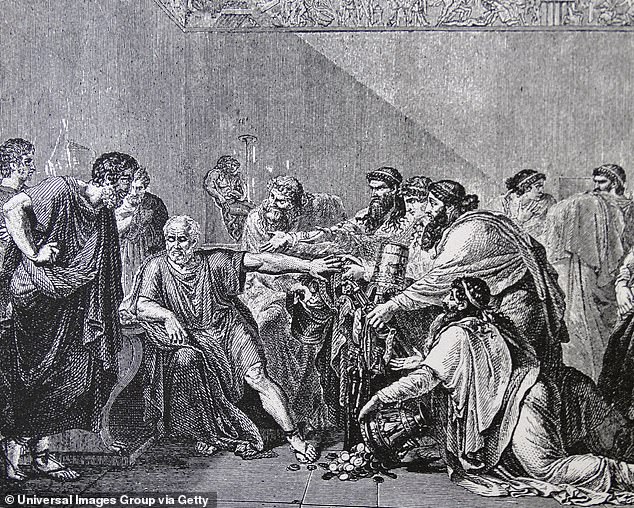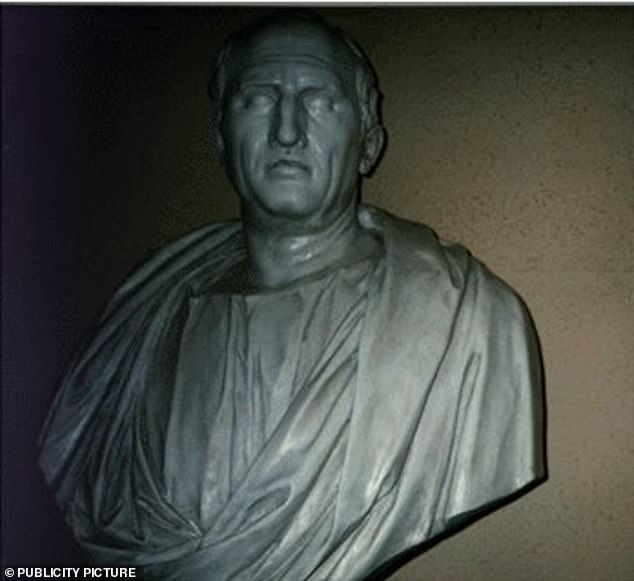Why the Romans didn’t get dementia – research shows it’s a ‘modern disease’ because there are so few mentions of severe memory loss in ancient texts
Dementia is likely a “modern disease” because there are so few mentions of severe memory loss in ancient Greek and Roman medical texts, scientists say.
Experts searched writings from 2,000 to 2,500 years ago – the time of Aristotle, Galen and Cicero.
The ancient Greeks recognized that aging often brings with it memory problems – today diagnosed as ‘mild cognitive impairment’.
But there was no evidence of major loss of memory, speech and reasoning, such as those caused by Alzheimer’s disease and other forms of dementia.
Professor Caleb Finch of the University of Southern California delved into ancient medical writings by Hippocrates and his followers.
Scientists believe dementia is likely a ‘modern disease’ because it is so little mentioned in Greek and Roman medical texts (stock photo)

A photo of Hippocrates refusing presents from Artaxerxes I of Persia

A bust of the Roman philosopher and statesman Marcus Tullius Cicero (106-43 BC)
The text catalogs conditions of the elderly such as deafness, dizziness and digestive disorders – but makes no mention of memory loss.
Centuries later, some mentions appear in ancient Rome. Galen noted that some had difficulty learning new things at the age of 80.
And Cicero noted that “the folly of the elderly… is characteristic of irresponsible old men, but not of all old men.”
Professor Finch said the findings, published in the Journal of Alzheimer’s Disease, reinforce the idea that Alzheimer’s is a product of modern life, largely fueled by air pollution and sedentary lifestyles.
He said, “There was a progression from the ancient Greeks to the Romans.” Professor Finch speculates that as Roman cities became denser, pollution increased, causing cases of cognitive decline.
